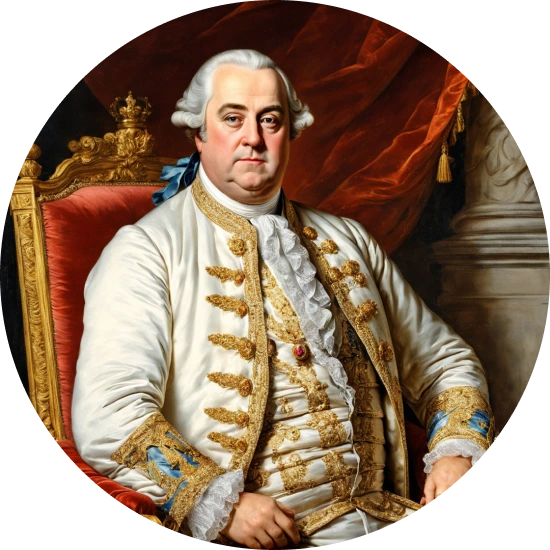Explore the Family Name Horton
How common is the last name Horton in the United States?
Based on the Decennial U.S. Census data, the popularity of the surname Horton has seen a slight shift between 2000 and 2010. In 2000, it was ranked the 335th most popular surname in America, but by 2010 it had dropped to the 367th position, a decrease of approximately 9.55%. Nevertheless, the count of people carrying this surname saw an increase of 2% over the decade, growing from 83,523 in 2000 to 85,195 in 2010. Despite the rise in count, the proportion per 100,000 decreased by 6.72%, indicating that the growth of the surname didn't keep pace with the population increase.
| 2000 | 2010 | Change | |
|---|---|---|---|
| Rank | #335 | #367 | -9.55% |
| Count | 83,523 | 85,195 | 2% |
| Proportion per 100k | 30.96 | 28.88 | -6.72% |
Race and Ethnicity of people with the last name Horton
The ethnic identity associated with the Horton surname has also experienced changes according to the Decennial U.S. Census. The percentage of individuals identifying as Asian/Pacific Islander, two or more races, Hispanic, and Black increased from 2000 to 2010. The Asian/Pacific Islander demographic saw a 30% increase, those identifying with two or more races grew by 31.21%, while the Hispanic representation rose by 45.75%. The Black community recorded a modest increase of 3.4% during this period. However, individuals identifying as White saw a decrease of 2.99%, and the American Indian and Alaskan Native group held steady at 0.69% for both years.
| 2000 | 2010 | Change | |
|---|---|---|---|
| White | 72.15% | 69.99% | -2.99% |
| Black | 23.5% | 24.3% | 3.4% |
| Two or More Races | 1.73% | 2.27% | 31.21% |
| Hispanic | 1.53% | 2.23% | 45.75% |
| American Indian and Alaskan Native | 0.69% | 0.69% | 0% |
| Asian/Pacific Islander | 0.4% | 0.52% | 30% |
Horton ancestry composition
23andMe computes an ancestry breakdown for each customer. People may have ancestry from just one population or they may have ancestry from several populations. The most commonly-observed ancestry found in people with the surname Horton is British & Irish, which comprises 54.0% of all ancestry found in people with the surname. The next two most common ancestries are French & German (21.9%) and Eastern European (3.7%). Additional ancestries include Scandinavian, Nigerian, Italian, Spanish & Portuguese, and Ghanaian, Liberian & Sierra Leonean.
Ready to learn more about your ancestry? Get the most comprehensive ancestry breakdown on the market by taking our DNA test. Shop 23andMe
| ANCESTRY BREAKDOWN | COMPOSITION |
|---|---|
| British & Irish | 54.0% |
| French & German | 21.9% |
| Eastern European | 3.7% |
| Other | 20.4% |

Possible origins of the surname Horton
Your DNA provides clues about where your recent ancestors may have lived. Having many distant relatives in the same location suggests that you may all share common ancestry there. Locations with many distant relatives can also be places where people have migrated recently, such as large cities. If a large number of individuals who share your surname have distant relatives in a specific area, it could indicate a connection between your surname and that location, stemming from either recent ancestral ties or migration.
Based on 23andMe data, people with last name Horton have recent ancestry locations all within the United Kingdom of Great Britain and Northern Ireland.
| RECENT ANCESTRY Location | Percentage |
|---|---|
| Greater London, United Kingdom | 82.80% |
| Glasgow City, United Kingdom | 82.70% |
| West Midlands, United Kingdom | 82.70% |
| Greater Manchester, United Kingdom | 82.70% |
| Merseyside, United Kingdom | 82.30% |
What Horton haplogroups can tell you
Haplogroups are genetic population groups that share a common ancestor on either your paternal or maternal line. These paternal and maternal haplogroups shed light on your genetic ancestry and help tell the story of your family.
The top paternal haplogroup of people with the surname Horton is R-Z19, which is predominantly found among people with European ancestry. Haplogroup R-Z19 is descended from haplogroup R-M343. Other common haplogroups include R-M467 and I-Y7273, which are predominantly found among people with European and European ancestry. Other surnames with similar common haplogroups are: Sutton, Randall, Lawrence, Bryan, Bryant, Piper, Mitchell, Green, Baxter, Lang.
The most common maternal haplogroups of people with Horton surname are: H1, H, V. These most commonly trace back to individuals of European ancestry.
 Paternal Haplogroup Origins R-M343
Paternal Haplogroup Origins R-M343
Your paternal lineage may be linked to King Louis XVI
The rule of France by men of the House of Bourbon began with King Henri IV in 1589 C.E. and continued until the beheading of his direct paternal descendant King Louis XVI in 1793. Several years ago, researchers analyzed a mummified head and a blood-soaked cloth that they believed might belong to the two kings, and concluded that the royal paternal line belonged to haplogroup G. In a more recent study, however, a different set of researchers tested three living men who are direct descendants of the Bourbon kings. Their efforts revealed that the male lineage of the House of Bourbon is actually a branch of haplogroup R-M405.
Your maternal lineage may be linked to Marie Antoinette
Because it is so dominant in the general European population, haplogroup H also appears quite frequently in the continent's royal houses. Marie Antoinette, an Austrian Hapsburg who married into the French royal family, inherited the haplogroup from her maternal ancestors. So did Prince Philip, Duke of Edinburgh, whose recorded genealogy traces his female line to Bavaria. Scientists also discovered that famed 16th century astronomer Nicolaus Copernicus traced his maternal lineages to haplogroup H.

What do people with the surname Horton have in common?
Spoiler alert: it's complicated. People with the same last name are usually no more genetically similar than a randomly sampled group of people from the same population. That said, people with the same surname are more likely to have similar ancestries than randomly sampled individuals. The reason is the tendency of people with similar cultural or geographical backgrounds to preferentially mate with one another. That's why people who share a surname may be more likely to share traits and tendencies in common than people within the general population. Check out the percentages below to see the prevalences of tastes, habits, and traits of people with your surname compared with prevalences among 23andMe users.
Preferences
Traits
Habits
Wellness
Are health conditions linked to the last name Horton?
The short answer is that, if there is an association between surname and health, it's usually more about your ancestry than your name. Individuals with a given surname are no more genetically similar than the general population but often have similar ancestries. The populations of people associated with those shared ancestries often have sets of genetic variations, also known as alleles, in common. Some of those alleles are associated with a greater likelihood of developing certain diseases.
Disease variant frequency by ancestry
Disease allele frequencies in populations associated with the surname Horton are shown below. Important Note: not everyone with a disease allele will develop these health condition


























